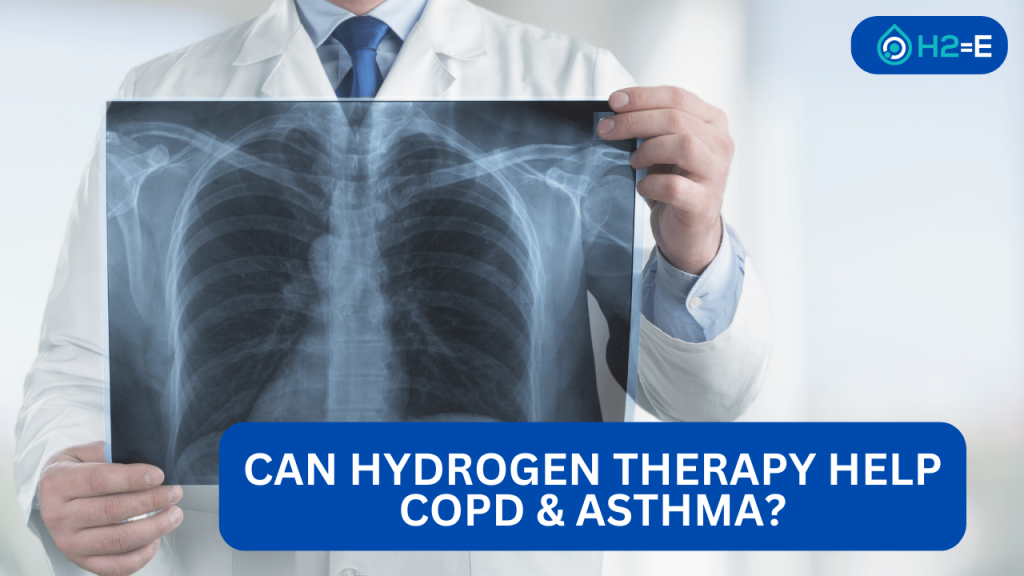Understanding H2 For Your Health
Molecular hydrogen supports every cell and organ in the body. It has anti-oxidative, anti-inflammatory and anti-aging effects and contributes to the regulation of autophagy.
Autophagy is a cellular recycling system, that allows your body to break down and reuse old cell parts so that they can operate more efficiently.
Effects of hydrogen on COPD
COPD includes the conditions chronic bronchitis and pulmonary emphysema.
People with COPD often experience breathlessness and a reduction in exercise tolerance, which can significantly impact on their quality of life.
Oxidative stress and inflammation play important roles in the development of COPD.
Oxidative stress is an imbalance between the body’s production of free radicals and their neutralization by antioxidants.
Studies have showed that participants who had cigarette smoking induced COPD and were experiencing reduced lung function, emphysema and inflammation, were able to gain significant health improvements with hydrogen therapy.
As COPD is largely related to oxidative stress and inflammation, inhalation of molecular hydrogen would appear to be an ideal therapy. Not only is it able to be delivered directly into the lungs, but its potent antioxidant and anti-inflammatory properties effectively treat the main symptoms as well as supporting the regeneration of cells that have been damaged.
A clinical trial has showed that hydrogen gas inhaled for 45 min in patients with asthma or COPD decreased the levels of pro-inflammatory factors in the blood and exhaled breath (Wang ST et al., 2020).
Hydrogen can reach lung cells easily and quickly, and act directly on the lungs, leading to good therapeutic efficacy (Liu et al., 2011).
Effects of hydrogen on asthma
Asthma is a chronic inflammatory condition of the airways that causes coughing, shortness of breath, chest tightness and wheezing.
Hydrogen can effectively reduce inflammation and oxidative stress in people experiencing asthma.
In cases of allergy induced asthma, hydrogen has been shown to significantly alleviate hyper responsiveness, having a positive impact on dampening down the body’s immune responses and also reducing inflammation. (Huang et al., 2019)
In a healthy person, alveolar macrophages keep the airways clear of bacteria, allergens and foreign particles. In asthmatics this function is significantly reduced, however, hydrogen gas inhalation has been shown to reverse this (Huang et al., 2019).
These results suggest that hydrogen alleviates allergic airway inflammation and improves airway function in asthma.


